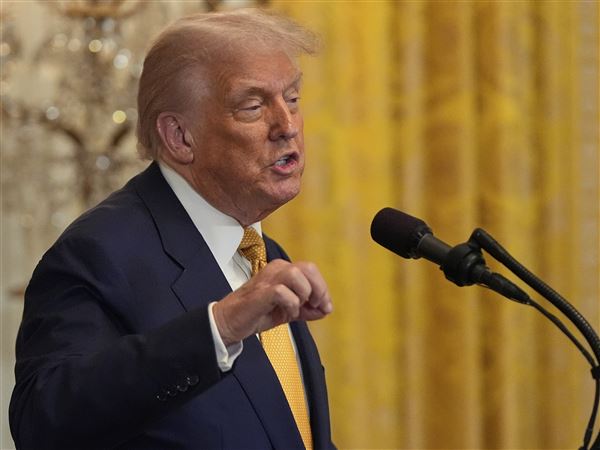The Allegheny Intermediate Unit operates a $167 million budget made up largely by local, state and federal funds, yet in recent months it has held little to no public discussions on how spending decisions are made, raising questions about whether it is skirting the state open meeting law.
Nicole Reigelman, press secretary for the state Department of Education, said intermediate units, such as school boards, are governed by the Sunshine Act, which requires public bodies to hold public deliberations and voting.
Thomas Gluck, executive director of the Pennsylvania Association of Intermediate Units, concurs that intermediate units are covered by the law.
“The [intermediate unit] boards are obligated under the Sunshine Law to conduct deliberations and voting in public and my impression is that IUs with their boards are incredibly careful about conducting business within the law,” Mr. Gluck said.
However, while the AIU advertises a monthly 5 p.m. workshop session to be held before the 7 p.m. legislative meeting, the board spends most of the time on meeting days between 5 p.m. and the start of the legislative session behind closed doors.
Since January, when the Pittsburgh Post-Gazette started to attend AIU board meetings, no workshop has started at 5 p.m. At that hour, the AIU board goes behind closed doors, where its 13 members are fed dinner and hold an executive session.
Under the law, there are limited topics permitted to be discussed in executive session, which include personnel, litigation and real estate transactions. Most other business is required to be discussed in public.
During some months, the AIU board emerged to a brief workshop session, during which a few questions were asked by board members before starting its public legislative session, where it votes on large agendas in just several motions, lumping together dozens of agenda items. The voting is generally over in a matter of minutes.
But at the June 22 board meeting, the AIU board held a 2½-hour executive session from which it went directly into a public voting session, with no workshop and no public discussion or deliberation on any of the items in the 65-page agenda.
It was an agenda that included the elimination of seven administrative and central office jobs and two special education paraprofessionals, the approval of 67 program budgets that totaled nearly $140 million, and a contract revision and separate new contract with the accounting firm Schneider Downs, which was hired in March to review the AIU’s troubled special education program.
It took the board three minutes to approve all of the items, with no public mention of the job eliminations, contracts or program budgets.
After the meeting, solicitor William Andrews said the board’s conduct complied with the law.
But Melissa Melewsky, legal counsel for the Pennsylvania News Media Association, disagreed. She said the way the AIU conducted the meeting “is a big problem because the public is entitled to comment meaningfully before official action takes place, and to do that they need to know what [the AIU board is] voting on.”
About 70 people attended the June 22 meeting, most of whom were special education employees or parents of special education students. In May, the board eliminated 20.4 special education jobs.
Ms. Melewsky said it appears the AIU board is treating its public vote “as a formality.”
“They are just coming out in public and taking a pro forma vote,” she said.
After the June 22 meeting, Mr. Andrews said AIU board president Shauna D’Alessandro, who also is a member of the West Jefferson Hills school board, was under no legal obligation to answer a reporter’s questions.
But Mrs. D’Alessandro did answer some questions.
When asked how board members deliberate, discuss and get information on agenda items, she said the AIU administration emails the agenda to board members several days before the meeting, and board members who have questions can either email or call administrators for information.
She said the AIU does not operate like a school board and should not be expected to discuss all of its actions in public. “We are a big organization. We don’t discuss every copy machine purchase in public,” Mrs. D’Alessandro said.
However, two local school districts have similar and larger budgets. They are Pittsburgh Public Schools with a $556 million budget and North Allegheny School District, which recently approved a $143.5 million 2015-16 budget.
And all school boards, regardless of size, hold deliberations in public. And there appear to be other intermediate units that also hold public deliberations.
James Wagner, executive director of the ARIN Intermediate Unit, which serves 11 school districts in Armstrong and Indiana counties, said his agency holds an open conference session before each of its meetings. But he pointed out that the public rarely attends.
He said he used the conference sessions to give reports and keep the board updated on issues, particularly news from Harrisburg. Also during the sessions, board members can ask questions or request that certain items be added or withheld from the agenda.
Mr. Wagner said board members also ask questions about agenda items at the legislative session and that the board reads and votes on each agenda item individually.
“Our voting meetings typically would last 20-40 minutes. We do not have a format to lump things together. Individual motions are read,” Mr. Wagner said.
Mr. Gluck, the state association official, said larger intermediate units tend to use “consent agendas” grouping categories into one motion as a “practical aspect to working through action items.”
The AIU, which serves the 42 suburban school districts in Allegheny County, is the largest of the state’s 29 intermediate units. The AIU board comprises school board members from around the county. Its members are elected by school directors throughout the county.
Mr. Gluck said he “was not aware of any violation of the Sunshine Law at the Allegheny IU.”
First Published: June 29, 2015, 4:00 a.m.


















